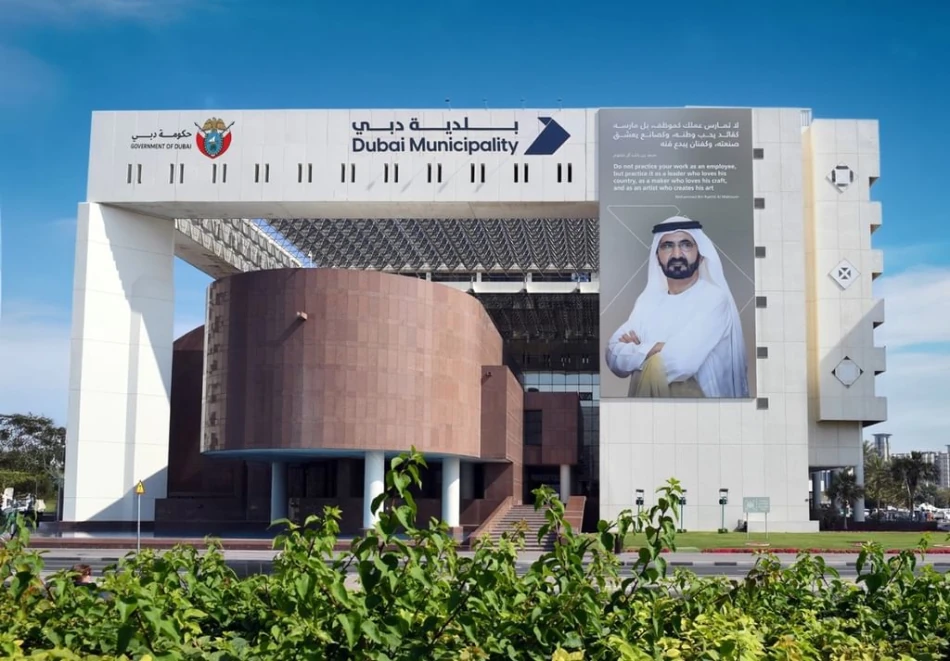
Dubai Municipality Wins 'National Champion' Award at Global Safety Awards
Dubai Municipality Claims Top Global Safety Honor, Joining Elite Circle of World-Class Organizations
Dubai Municipality has secured the prestigious "Country Winner" title at the 2025 International Safety Awards from the British Safety Council, positioning itself among only 10 organizations worldwide to achieve this recognition. The achievement underscores Dubai's systematic approach to establishing world-class occupational health and safety standards, potentially setting new benchmarks for municipal governance across emerging markets.
A Global Competition with High Stakes
The International Safety Awards represent one of the most coveted recognitions in occupational health and safety, drawing hundreds of participants from across the UK, Africa, Asia, India, Europe, and the Middle East. Dubai Municipality's victory places it in an exclusive group of organizations that have demonstrated exceptional commitment to workplace safety protocols and risk management systems.
This recognition carries particular weight given the competitive landscape. Unlike regional awards that may favor local practices, the British Safety Council's evaluation process applies uniform international standards, making Dubai's achievement a genuine measure against global best practices rather than regional comparisons.
Strategic Implications for Dubai's Economic Vision
Attracting International Investment
For multinational corporations evaluating expansion into the Middle East, municipal safety standards often serve as a proxy for broader regulatory competence. Dubai's recognition signals to investors that the emirate maintains institutional frameworks comparable to developed markets, potentially reducing perceived operational risks for international businesses.
This matters particularly in sectors like manufacturing, logistics, and construction—key pillars of Dubai's economic diversification strategy—where safety compliance directly impacts insurance costs, operational efficiency, and regulatory approval timelines.
Competitive Positioning Against Regional Hubs
Dubai's achievement creates a measurable advantage over competing regional business hubs. While cities like Riyadh, Doha, and Kuwait City have invested heavily in infrastructure and business-friendly policies, Dubai now possesses third-party validation of its operational safety standards—a factor that increasingly influences corporate location decisions in risk-conscious industries.
The Technical Framework Behind the Success
According to Dr. Naseem Mohammed Rafee, Acting Executive Director of the Environment, Health and Safety Foundation at Dubai Municipality, the achievement stems from systematic implementation of international best practices in risk management and preventive safety culture.
The municipality's approach appears to focus on proactive risk mitigation rather than reactive compliance—a distinction that separates leading organizations from those merely meeting minimum standards. This includes innovative programs designed to minimize workplace incidents and injuries while promoting employee wellness.
Broader Context: The UAE's Safety Leadership Strategy
Dubai's recognition aligns with the UAE's broader strategy of achieving international recognition across multiple governance categories. Similar to how Dubai International Airport consistently ranks among the world's busiest and most efficient, or how the UAE's passport ranks among the most powerful globally, this safety award represents another pillar in the country's systematic approach to building institutional credibility.
The timing is particularly strategic as the UAE prepares to host COP28 and continues positioning itself as a hub for sustainable development initiatives. International safety recognition supports the narrative that the UAE can manage complex, large-scale projects while maintaining world-class operational standards.
What This Means for Municipal Governance Models
Dubai Municipality's success offers a template that other rapidly developing cities might study and adapt. The integration of international safety standards into municipal operations demonstrates how emerging market cities can leapfrog traditional development phases by adopting proven frameworks rather than developing systems from scratch.
For other GCC municipalities, Dubai's achievement likely creates competitive pressure to elevate their own safety standards, potentially driving regional improvements in workplace safety across the Gulf states.
The recognition also validates Dubai's investment in institutional capacity building—an often overlooked factor in urban development that can determine whether cities successfully transition from rapid growth phases to sustainable, mature economic centers.
Most Viewed News

 Sara Khaled
Sara Khaled






